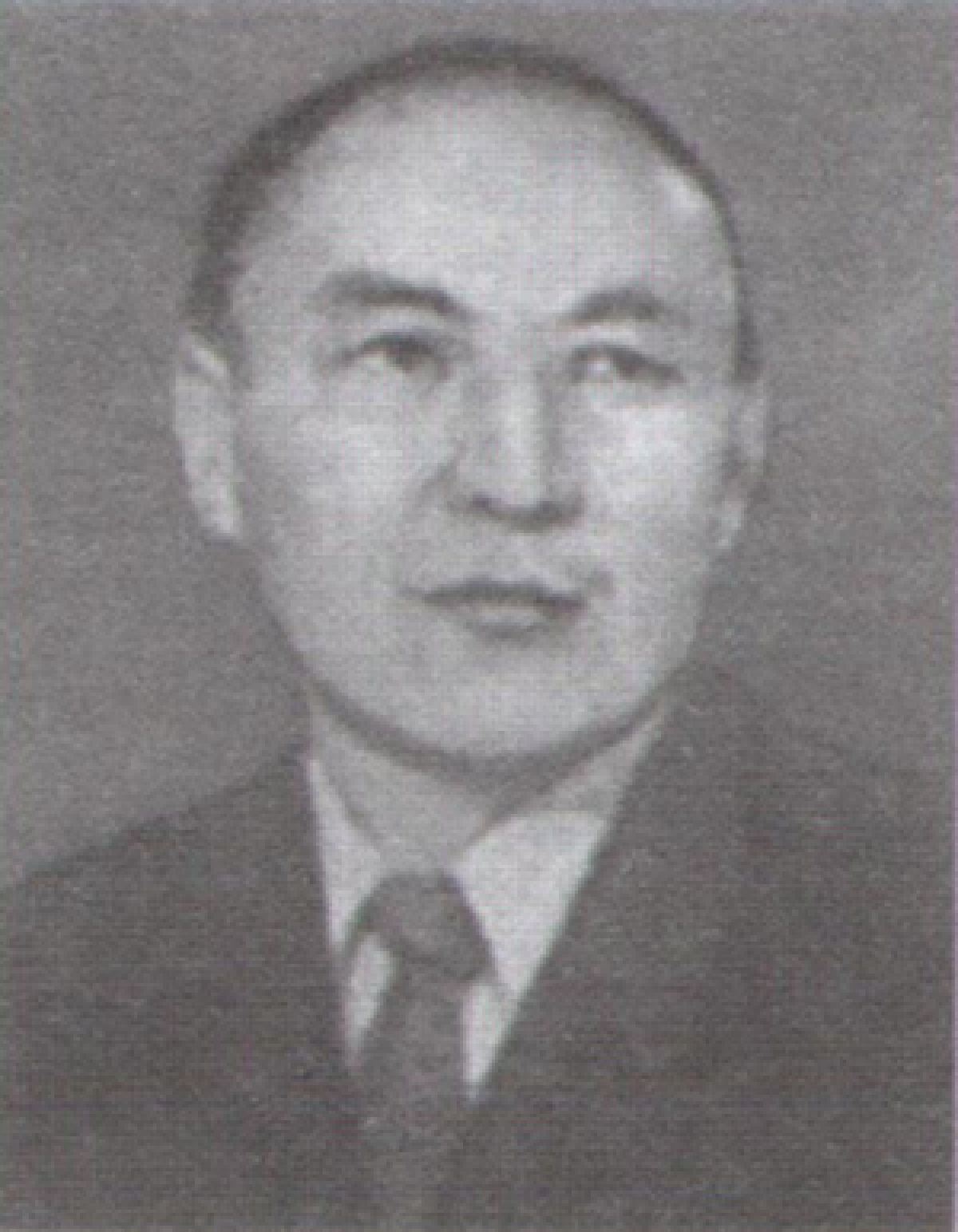Nurtazin Temirgali
Temirgali Nurtazin (was born on December 6, (December 29) 1907 in city Kurgan of Kurgan county, passed away on April 10, 1977 in Alma-Ata) – Kazakh soviet theorist of literature, writer, literary critic, interpreter.
The doctor of philological science, the theorist of literature Temirgali Nurgazin was born in 1907 in the city of Kurgan. Together with his father he worked for Bais, worked at oil milling plants of the company Shelagin. He studied in madrasah, then at the Russian school.
He edified at elementary school, worked in the Red yurta, becomes the chairman of collective farm. He got an education in the Peter and Paul pedagogical college and teacher training college in Leningrad. Then Kazgosuniver-siteta worked as the editor of the Karaganda regional newspaper, the director of the Kazakh academic drama theater in Alma-Ata, the teacher of teacher's college of a name named after Abay and, at last at Kazakh Agro University.
In Nurtazin’s translation A. Avdeenko’s book “I love” was published. N. V. Gogol's story “Taras Bulba”, a one-volume edition of the chosen articles of V. G. Belinsky, sketches and G. Uspensky's stories, and he translated from Kazakh into Russian the first book of the novel of M. Auezov “Abay” (together with L. Sobolev and A. Nikolskaya).
In 1966 the big monograph of T. Nurtazin about life and creativity of one of initiators of the Kazakh Soviet literature of Beimbet Maylin was published.
Temirgali Nurtazin is an outstanding writer, the critic, the literary critic taking the important place in a cohort of the writers who have made a huge contribution to business of development and formation of the Kazakh literary science, to process of creation of history of the Kazakh literature. He wrote the volume monograph “О творчестве С.Муканова” (“About the creativity of S.Mukanov”, 1951), “Писатель и жизнь” (“Writer and Life”, 1960), “Творчество Б.Майлина” (“The creativity of B.Mailin”, 1967), “Мысли о мастерстве” (“Thought of skill”, 1968), which have been adequately estimated in space of the Union, the story “Мурат” (“Murat”, 1958), “Новая ступень” (“A new step”, 1959), the novel “Испытание” (“Test”, 1972), in Russian in due time – “Клятва Турара” (“Turar's Oath”, 1989).
One of sides of talent of the writer, professor, the Doctor of Philology Temirgali Nurtazin – sketches. In 1966 there was his first book of sketches “Адам бекерге жасамайды” (“The person lives not without reason”), in 1973 there was the second – “Ауыл тынысы” (“Breath of the aul”).
Generally, all sketches of T. Nurtazin on subjects can be divided into the following groups: development by rural youth of language of equipment, aspiration to scientific knowledge, animal husbandry, agriculture, production, etc.
In T. Nurtazin's sketches images of the youth aspiring to scientific knowledge, the cattle breeders, peasants, workers who are fond of all new in life, just ordinary people able and liking to work are created. The writer offers us as an example efficiency, energy, diligence of these ordinary workaholics.
The novel of Temirgali Nurtazina “Turar's Oath” became one of the first novels on the historian – a revolutionary theme. In him the writer set the purpose of the art image of life of the outstanding son of the Kazakh people, great fighter Turar Ryskulov. In the novel the relations of the Kazakh people to revolution, their life in revolutionary time and years of the Soviet power, fight in the republic Turkistan, friendship of the people are represented. And in the center of these events Turar Ryskulov, his private life and public fight is shown.
One of features of literary skill – the truthful image of vital material, destinies of certain characters of the novel. T. Nurtazin distinguishes disclosure of psychological features of the hero and his environment, appearance of characters, their destinies during a vague era.
Share:









